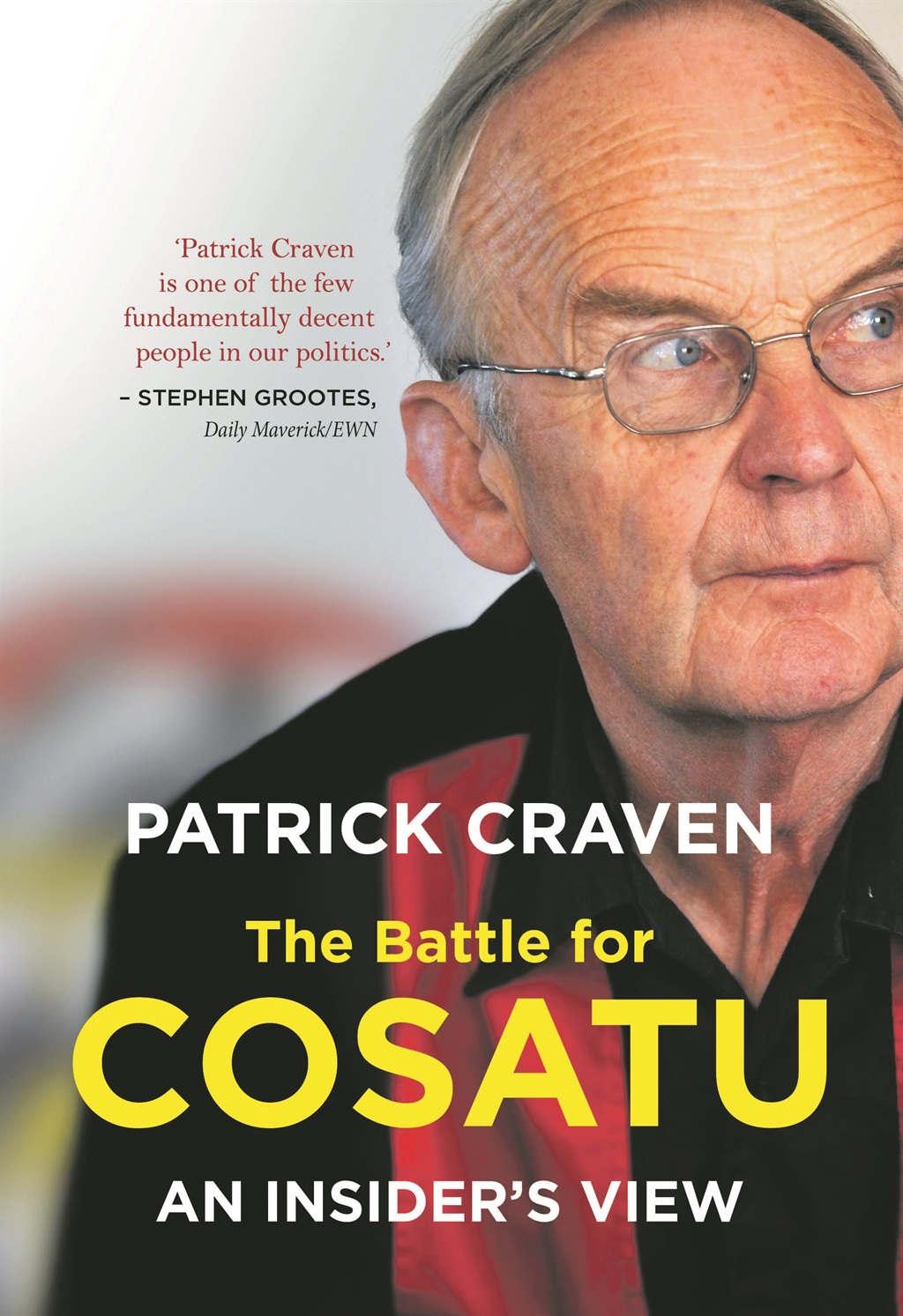
Patrick Craven gives an ‘insider’s view’ of the infighting and the federation’s determination to get rid of Zwelinzima Vavi
One of Cosatu’s longest-serving staffers has laid the blame for the federation’s implosion squarely at the feet of the SA Communist Party (SACP).
Patrick Craven was Cosatu’s national spokesperson for more than a decade before quitting last year to join expelled metalworkers’ union Numsa and reunite with his old boss, Zwelinzima Vavi, in the effort to build a new federation from scratch.
His book on the unravelling of the federation, The Battle for Cosatu: An Insider’s View, is on sale this week.
It chronicles the period from 2011 to last year, during which time Cosatu was wracked with internal battles centred on its then-general secretary Vavi and his increasingly critical stance towards the tripartite alliance.
Vavi first got suspended in 2013 amid rape allegations, but was reappointed after a court victory.
The saga precipitated a historic split of the federation, with its largest single member, Numsa, getting expelled for its anti-ANC stance and then leading a breakaway that saw Cosatu reduced to a majority state-employee federation.
Vavi was summarily dismissed last year after he publicly sided with Numsa and the other sympathetic unions against the Cosatu leadership.
Craven was there for all of it.
Right off the bat, he squarely blames the SACP for what happened.
“From start to finish, there was a group of anti-Vavi and anti-Numsa hardliners within the SACP that never had any intention of compromising...” says Craven.
This includes Cosatu president Sdumo Dlamini; National Education, Health and Allied Workers’ Union general secretary Fikile Majola; National Union of Mineworkers (NUM) president Senzeni Zokwana; and NUM general secretary Frans Baleni.
All of them, and many more Cosatu leaders, simultaneously held SACP positions.
Majola and Zokwana both headed for government jobs in 2014 as well, which leads to another major theme in the book: the way Cosatu unions act as stepladders to political careers.
“It can’t be coincidental that these SACP heavyweights were always among the initiators and intransigent advocates of the campaign to purge the federation of ... [Vavi and Numsa],” Craven claims.
“And always behind the scenes was Blade Nzimande ... who was the very first to raise the political arguments that came to dominate the dispute.”
The SACP’s historical distrust of independently minded “workerist” unions runs deep, says Craven.
By 2012, “with SACP leaders ensconced in the centre of state power, left opposition within the unions was no longer just a question of different views, but a challenge to the powerful and privileged position the party leadership had assumed”.
It was ironically the SACP that tried to reduce Cosatu to a “labour desk” of the ANC and neuter left criticism of everything from e-tolls to the National Development Plan, argues Craven.
Vavi was accused of working with the DA, working with anti-government nongovernmental organisations, working with Numsa against the NUM and many other things during a drawn-out internal battle.
A major theme throughout Craven’s account is the abuse of conspiracy theories to fight factional battles.
The invention of absurd accusations to discredit opponents is now so entrenched in government, the ANC and the SACP that the country will basically never be able to respond if there is a real threat from a real conspiracy, he argues.
As a Vavi man, Craven can’t avoid talking about the one truly serious mark against the man – his affair with a junior employee in Cosatu House, which led to an allegation of rape, an alleged extortion racket and, ultimately, Vavi’s suspension in 2013.
“In retrospect, it might seem that this was when I should have taken the decision to resign from the federation, though at the time it was not something that I was even considering...” says Craven.
“I was, of course, totally opposed to sexual acts within the workplace between a senior and a junior staff member.
“I was concerned that if I resigned at that time – even though I was fully aware that the alleged sexual misconduct had been opportunistically seized on as an excuse for Vavi’s opponents to take the action they had wanted to do before the incident – this could be seen as my condoning that behaviour.”
He ultimately quit on the day that Cosatu summarily dismissed Vavi.
A press conference was called to announce the decision and this was the “moment of truth”, writes Craven.
He simply packed up his things and left Cosatu House without telling anyone, rather than have to chair that press conference.
Despite the title, Craven’s book isn’t really an “insider’s view” as much as it is a summary of the sad story that unfolded in South Africa’s newspapers over a number of years.
Bringing it all together is a useful exercise, even if it is clearly from one partisan side of the line.
It is not written for dedicated South African politics-watchers.
Everything from the Freedom Charter to the location of Marikana is given a brief Wikipedia-esque explanation.
Large segments of the book, however, still end up being page-long quotes from newspapers and public documents such as Cosatu or ANC declarations. The ultimate consequences of the splits and purges that have given birth to a large number of new non-Cosatu unions still need to play themselves out.
The attempts to rebuild Cosatu will, however, fail, says Craven.
“Their hands are now tied behind their backs by a political leadership whose priorities are the same as those of their SACP allies – to talk left but to make sure that their criticisms are muted.”




 Publications
Publications
 Partners
Partners








